The new dark comedy Don’t Look Up shakes up the idea of what makes a good climate movie. Rather than focusing purely on weird science or Al Gore, it tells a great story by highlighting the criminal inaction on climate change. (Well, technically it’s about a comet headed for Earth, but it’s a clear stand-in for our real-world crisis.)
It’s also not alone in telling a story about climate change in a punchy way this year. Don’t Look Up was preceded this summer with a slightly more subtle climate movie: No Sudden Move, a mob thriller based on a little-known conspiracy by automakers in the 1950s to cover up their own research into air pollution.
It’s great that Hollywood seems to finally be finding ways to break out of the tired old model of telling environmental and climate stories using either heavy-handed storytelling like The Day After Tomorrow or bogus sci-fi setups like Geostorm. Focusing on inaction or actual crimes puts climate in more concrete terms. While Don’t Look Up is pure fiction, there’s no shortage of real-world examples of climate fuckery to highlight on the silver screen. In the spirit of giving Hollywood some story fodder to keep the momentum going, we’ve compiled a list of environmental crimes and criminals (in both the letter of the law and court of public opinion) that would be great fodder for the next blockbuster. Have at it, movie producers!
The Steven Donziger Case
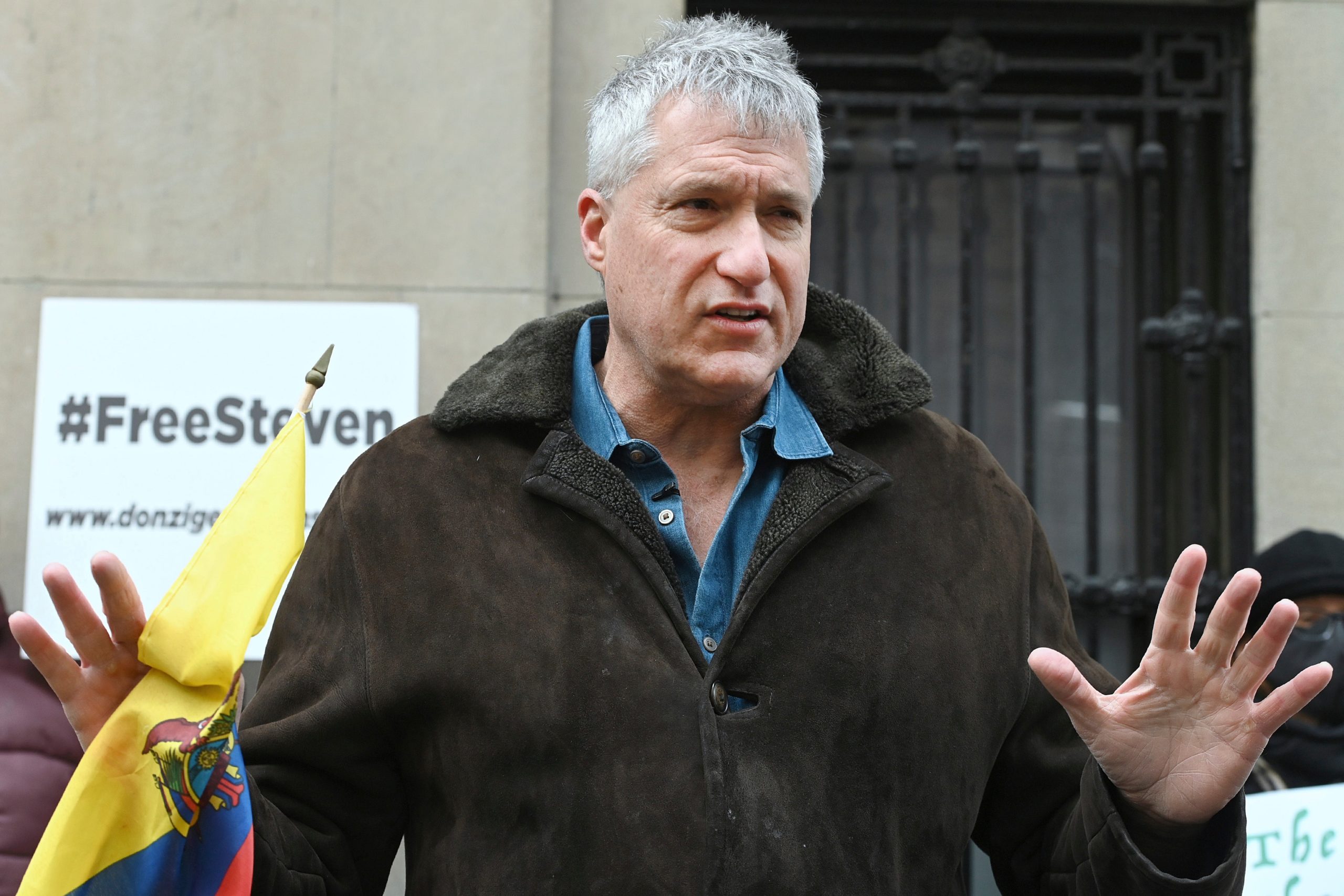
If screenwriters are looking for some easy material, the case of Steven Donziger basically writes itself. Donziger led a case against Chevron on behalf of 30,000 Indigenous people and farmers in the Amazon for widespread pollution of local water and environment. What’s more, he won the Ecuadorian court battle in a dramatic fashion: it was the biggest environmental human rights judgment in history.
Since the ruling, Chevron has refused to pay the ordered fine. Instead, it used the U.S. court system in unprecedented and troubling ways to come after Donziger, using a network of hand-picked and industry-friendly attorneys and judges. Donziger spent two years on house arrest before even facing a trial. The United Nations has gone so far as to call his house arrest illegal under international law and called for his release in September. The judge didn’t listen, and Donziger was sentenced to a six-month prison sentence in October.
Deepwater Horizon (Better This Time)
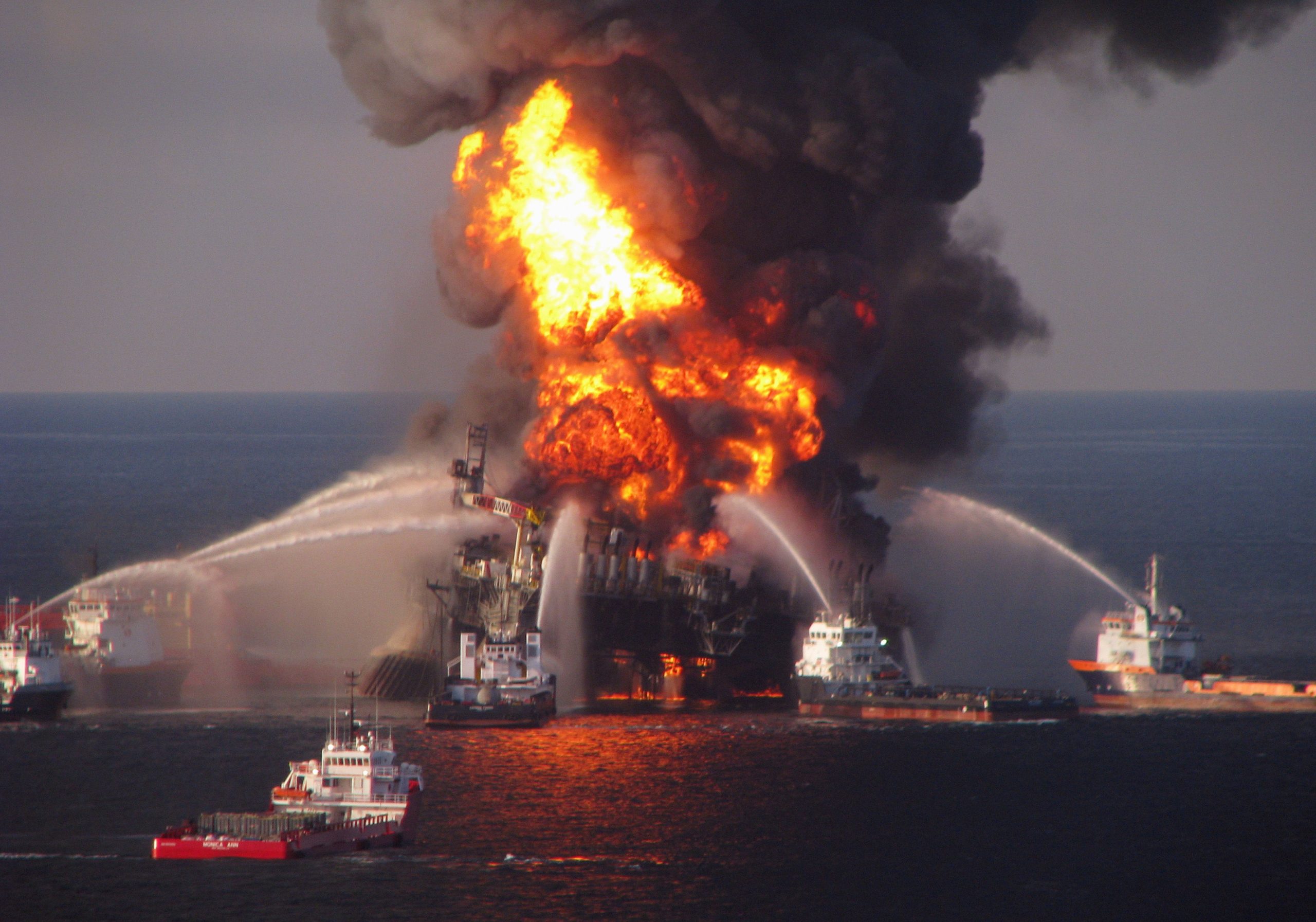
There was already a (pretty well-received) movie released in 2016 about the Deepwater Horizon disaster itself, starring Mark Wahlberg as a worker aboard the Transocean drilling rig that suffered a catastrophic explosion on April 20, 2010.
However, that movie only covers the blow-by-blow of the day of the explosion on the rig, relegating the aftermath — how only two people were prosecuted, and how the 87-day blowout spilled 210 million gallons of oil into the Gulf of Mexico — to a quick postscript. The film also doesn’t touch the safety shortcuts BP took that federal officials later found contributed to the disaster, nor how the company eventually paid only a fraction of the settlement for the damage it caused thanks to tax writeoffs. There’s room for a lot more dramatic storytelling for one of the biggest environmental disasters in U.S. history.
Scott Pruitt and His Fancy Lotions

Former Environmental Protection Agency chief and big coal fanboy Scott Pruitt served barely a year and a half in the Trump administration, but his time there was marked by outrageous moves that ripped apart the government’s ability to protect the environment and handed polluters dozens of primo free passes. The end of his tenure featured some of the most unforgettably bizarre political scandals in a presidency that featured some notably weird shit, including a few particularly… gross? Anecdotes from aides recounting how Pruitt tasked them with getting him a used mattress from the Trump International Hotel and a specific lotion from the Ritz Carlton. And who could forget Pruitt making his protection team turn on the flashing lights to get around Washington, DC.
These weren’t legal crimes, but they’re spiritually in the criminal camp. And they would be amazing dark comedic fodder. Think 2018’s Vice, but this time about how the head of the EPA required his own soundproof panic room.
A Koch Brothers Biopic
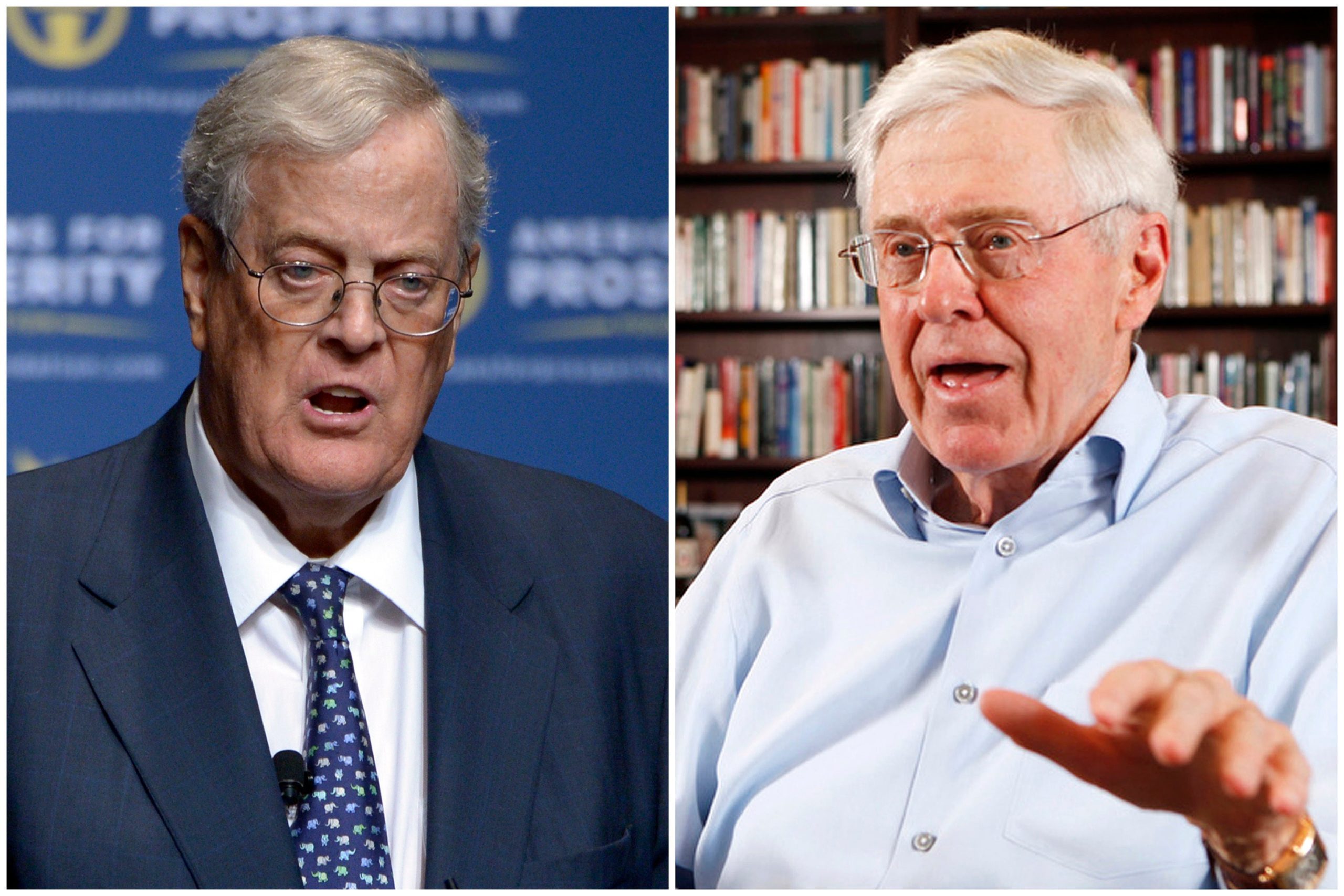
Dark money has played a crucial role in perpetuating climate denial, and there’s perhaps no more powerful dark money influence on climate policies than the Koch family, most notably brothers Charles and David. The brothers started out as managers at their family’s oil refining business and went on to become billionaires. Their corrosive influence on the climate discourse includes being some of the most important funders of denial through their contributions to conservative groups like the Heritage Foundation, the Cato Institute, and Americans for Prosperity.
While their outsize influence was kept hush-hush for years, dogged reporting over the past decade has exposed the brothers’ powerful influence on the climate denial machine from the 1990s to today. There’s no better way to portray the way private interests have changed the course of climate politics than following the Kochs’ money — and given how many big political players have taken handouts from them over the past 30 years, it would make a pretty gripping historical biopic.
Exxon’s PR Wizard
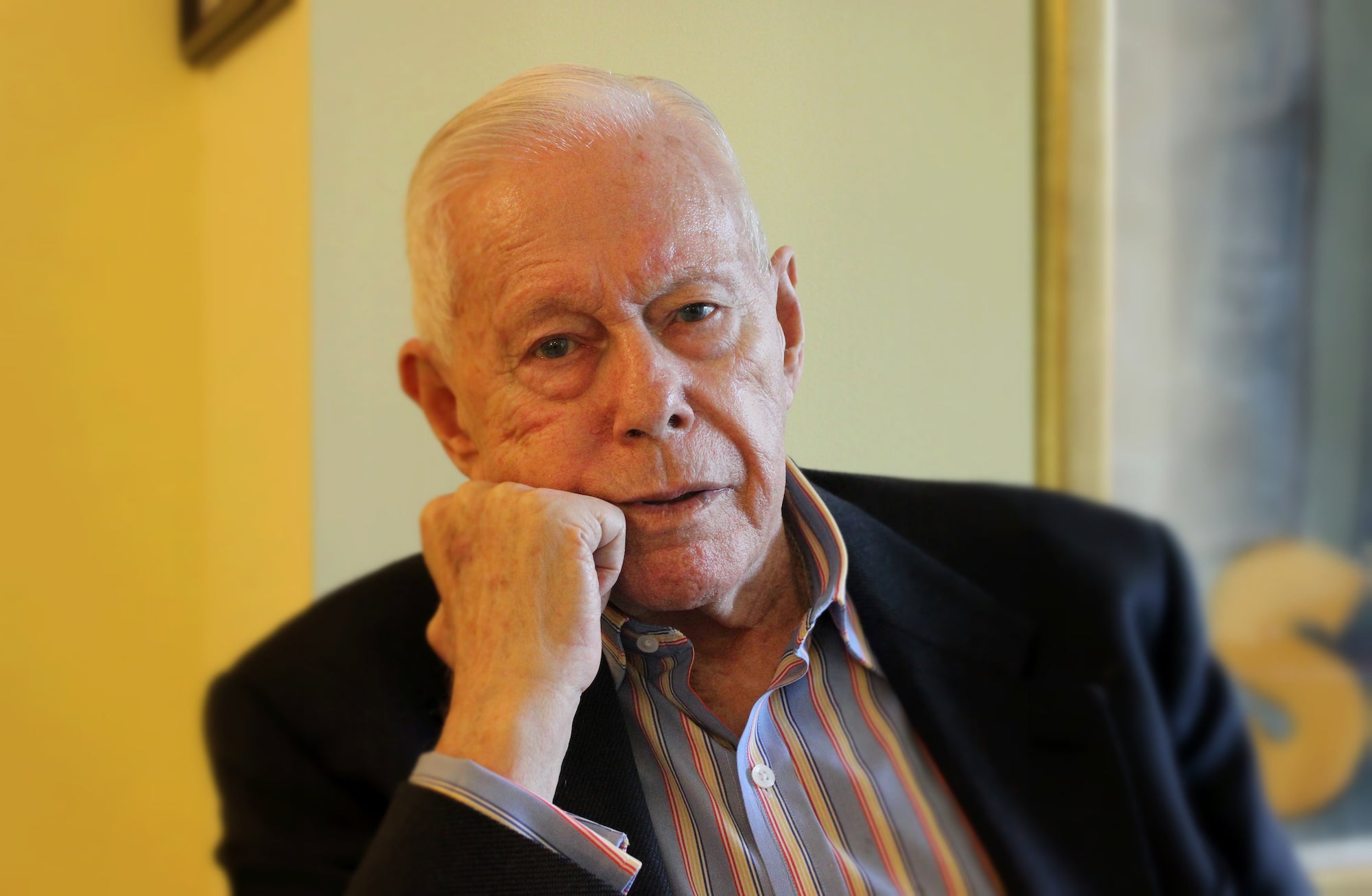
Herbert Schmertz was the head of Exxon’s PR operations from the early 1970s to the late 1980s, as the company was moving through the energy crisis of that era — and overlapping to when Exxon was beginning to do its own scientific work around climate change. What makes Schmertz, who died in 2018, such a good candidate for a movie is how he ruthlessly deployed new tactics to keep Big Oil in business.
He pioneered now-standard advertising techniques like disguising paid content as editorial content and having companies sponsor the arts to bolster their public image, not necessarily sell product (Exxon famously sponsored episodes of Masterpiece Theatre in the 1970s). Schmertz also fostered particularly aggressive relationships with reporters that helped him get the company’s message across. His ideas not only changed the face of the advertising industry, but also shaped how Exxon would do battle with reporters and manipulate science for its own gain in the decades to come. If the producers of Thank You For Smoking are hunting for a follow-up, Schmertz would be a great subject.
The Colonial Pipeline Hack
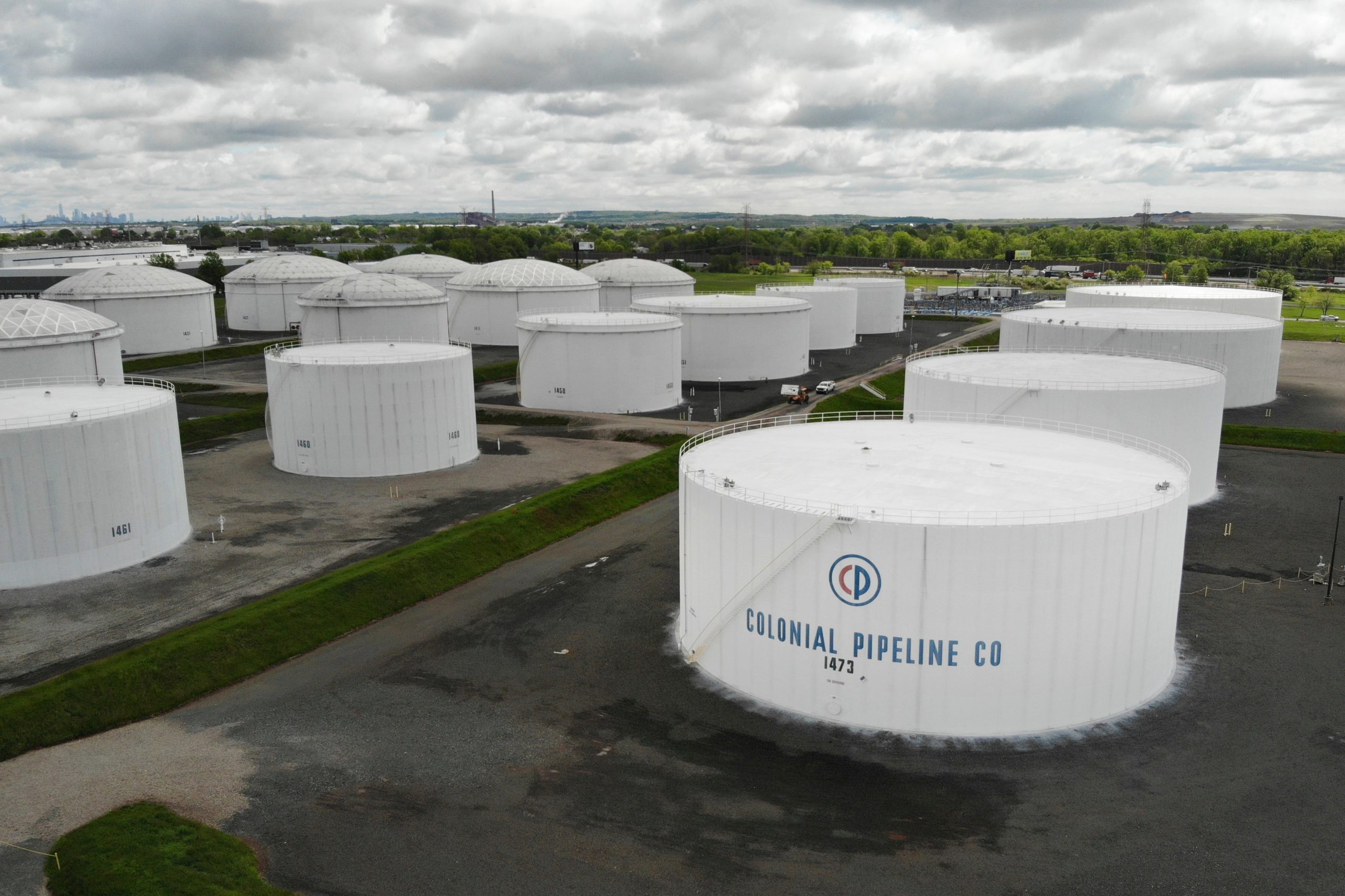
This year’s hack of one of the biggest pipelines in the U.S. has all the makings of a great cyber-comedy/thriller. (Yes, this is a new genre we just made up.) The hack shut down the pipeline for six days and sparked a gasoline shortage along the East Coast. It carried out by a hacker or hackers who demanded a ransom in bitcoin. And the pipeline’s security system was so easy to breach, one expert described it as readily hackable by someone “working at an eighth-grade level.” The fact that the hack happened to a company that was in the middle of cleaning up the largest gasoline spill in decades only adds dramatic (and absurd) icing to the cake.
The Massey Energy Mine Explosion
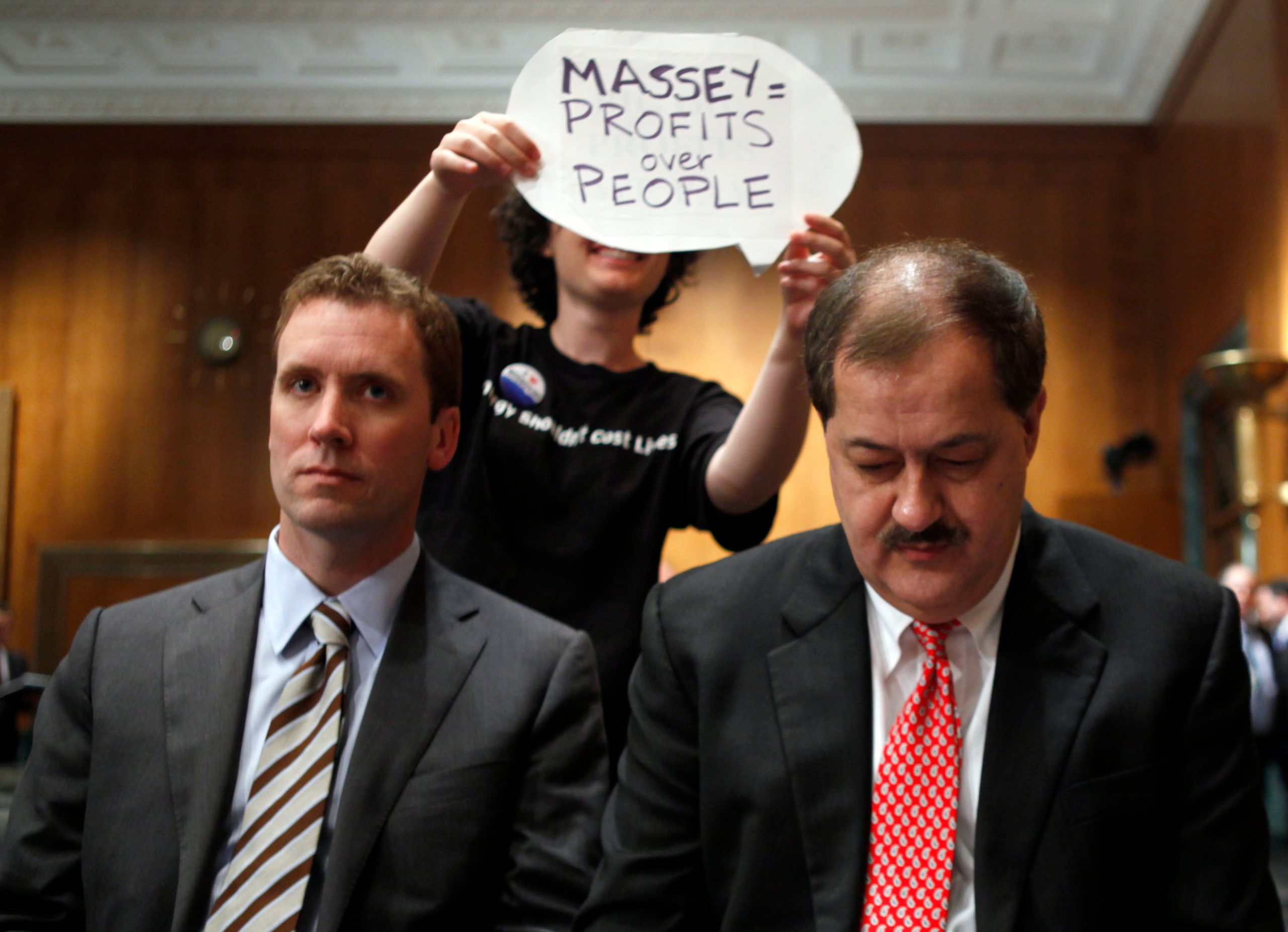
In April 2010, just days before the Deepwater Horizon disaster, an explosion at a coal mine in West Virginia killed 29 miners. The disaster was partially as a result of high methane levels in the unventilated mine. In the years after the explosion, a state investigation said the owner of the mine, Massey Energy, squarely to blame, alleging that the company “operated its mines in a profoundly reckless manner, and 29 coal miners paid with their lives for the corporate risk taking.”
Company executives were later charged with conspiracy to thwart mine safety inspections; Don Blankenship, then-CEO of Massey, a regular climate denier, and at the time the highest-paid CEO in the coal industry, was later sentenced to a year in prison. Blankenship has since made multiple failed attempts to run for office, and labelled Sen. Mitch McConnell “Cocaine Mitch” for some reason. (Narcos crossover, anyone?) There’s no story that better encapsulates how America’s coal boom benefited executives while putting workers at risk than this one.
Nuclear Tests in the Marshall Islands
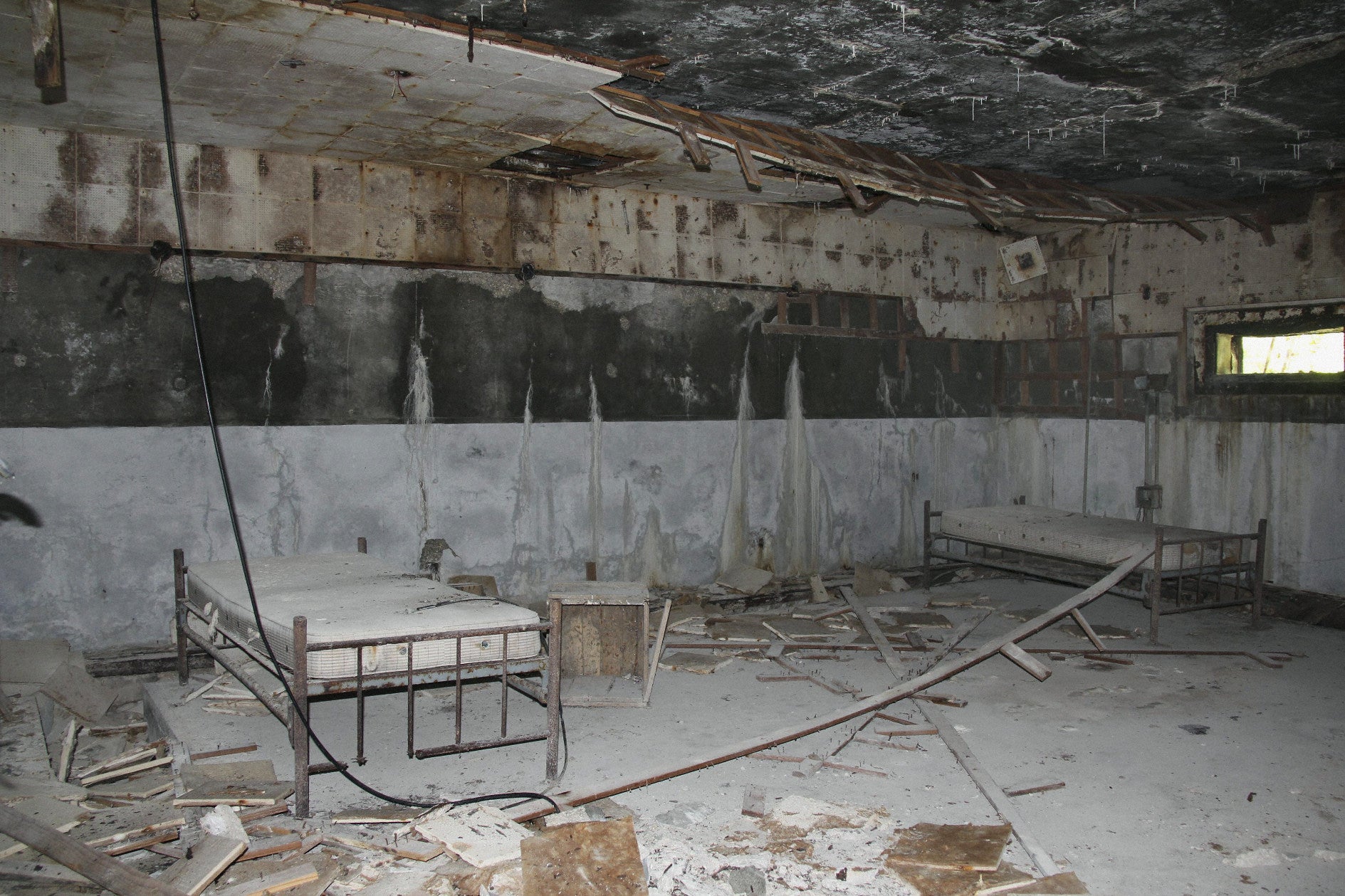
Between 1946 and 1958, the U.S. conducted a series of nuclear tests on the Marshall Islands. The country detonated 67 nuclear bombs, wiping away entire islands, and forcing hundreds of people to evacuate. Before the U.S. left, it and the Marshall Islands reached an agreement for the former not to hold the latter responsible for any after-effects of the tests. But the U.S. withheld various pieces of information about what it had done on the islands, including the fact that it had imported some of its own nuclear waste to store there. Sea level rise is now threatening some of those waste facilities.
Nuclear weapons have already made compelling fodder for movies from Dr. Strangelove to various spy movies like Mission Impossible. There’s no reason a historical account couldn’t add to the oeuvre.
The Iraq War
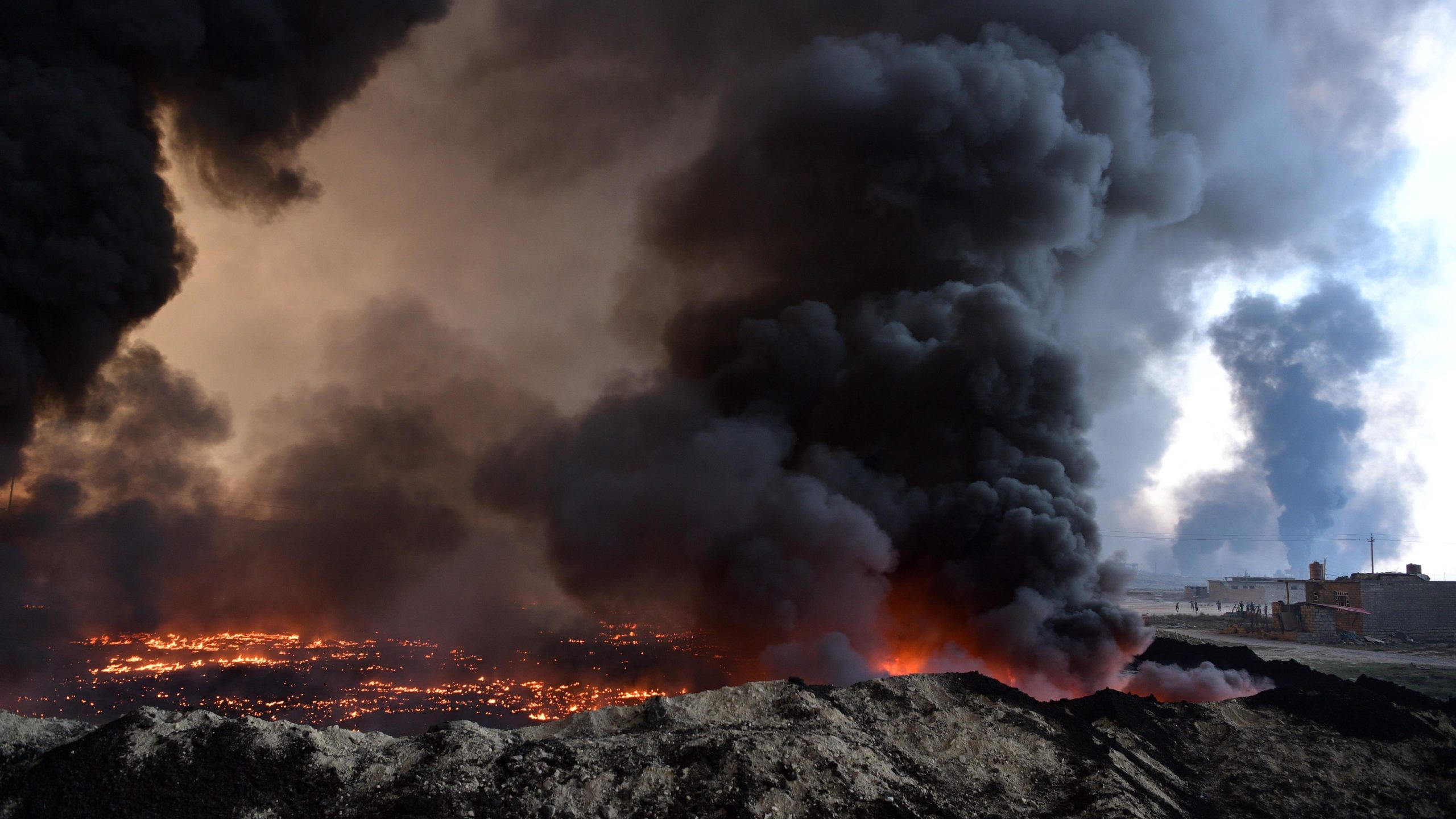
There have been plenty of movies about the war that has defined generations of Americans. Hollywood has spun out any number of narratives about the Iraq War from the glorified heist movie Three Kings to the glorified propaganda of American Sniper.
But none have fully delved into the way oil played a central role in the war planning and attempts to privatize the oil sector after the invasion — or the aftermath and how oil continues to factor into struggles in the region to this day. There’s a lot to still mine there at the intersection of government interests and private profits. Plus, the military is the world’s biggest institutional carbon emitter. Looking at it through the lens of war would be a powerful way to shed light on a serious subject.
